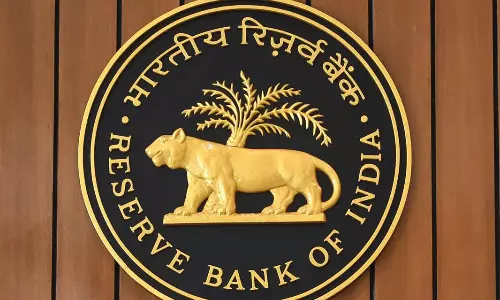
A retrograde step from democracy
text_fieldsThe present dispensation at the Centre are those who bragged about eradicating corruption.
However, Modi government have failed so far in taking effective steps in that regard. No measures have been taken to uncover the illegal currency concealed abroad. Not only have the government failed to stop the tax evasion of corporate giants, the debts amounting to hundreds of crores by many of them are also being frantically written off. Although checking counterfeit currency and corruption were one of the reasons cited to justify the note-ban move, it has proved to be a failure in that case as well. The Centre has now made two anti-people moves through the controversial financial amendments in the Finance Bill 2017. On one hand, the transparency earlier present in the election funding sector came to an end. Also the law itself has been altered so as to make possible unfair exertion of more power by the government on the people. Anti-people and anti-democratic Finance Bill introduces such unjust amendments through the ‘back-door’. Finance Minister Arun Jaitley during the budget address said that the way of amassing donations required ‘cleansing’. But the solution he found was exactly contradictory. The Bill passed by taking advantage of BJP’s majority in the Lok Sabha, lifts the constraints and limits to the donations for political parties. Necessary measures to hide the details of those donating to the parties are also incorporated in the Bill. With the electoral bonds coming into effect, the parties can earn as much money they want through the bonds. The details of the donors also needn’t be divulged.
It’s when the Income Tax Department emphasizes on disclosing the financial source of even those donating small amounts of money for charitable activities, that the political parties adopt such a corrupt stance. The Bill has removed the cap of how much the corporate organizations can donate to political parties. Now onwards it will be easier for the rich as well as the corporate bigwigs to ‘purchase’ the parties and the government. According to a report by Association for Democratic Reforms, last year, about 70 per cent of the funding of political parties come from unknown sources. It’s needless to say that there are vested interests behind these donations and that it’s a ‘license’ to avail more money from those who assume power. Instead of sealing the corruption holes, the government has not only removed the cap for donations, but has also stated that the source of donations needn’t whatsoever be revealed. In short, corruption earlier was limited and illegal and now it has become unlimited and legal. With donations pouring in from foreign companies as well, the ‘cleansing’ process attains completion.
While the Finance Bill loosens the constraints on the government as well as the corrupt officials, it tightens the noose around the necks of common man. The special rights given to the tax officers is the most dangerous. Giving the right to raid any property any time without any notice to conduct the surveys as well as seize the assets will lead to their complete authority. The law which is against general justice and civil rights will pave way for UAPA or further denial of rights. While the Finance Minister remained silent on Aadhaar during the budget address, he made Aadhaar mandatory for filing income tax returns thereby avoiding the discussions on the matter. The Supreme Court ruling that Aadhaar cannot be made mandatory, has also been repudiated by making compulsory the linking of Aadhaar card to PAN card. The Centre can now choose the members of the tribunal. The laws that curtail the freedom of citizens and provide more power to the government, were included in the money Bill so as to overcome the obstacles posed by Rajya Sabha. The cynical moves of the Centre that dupes the law and the Parliament leaves the governance open to corruption and bias and at the same time renders it ambiguous. This path forward is a retrograde step from democracy.























